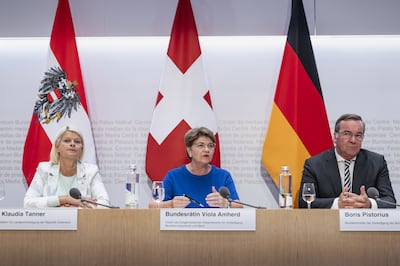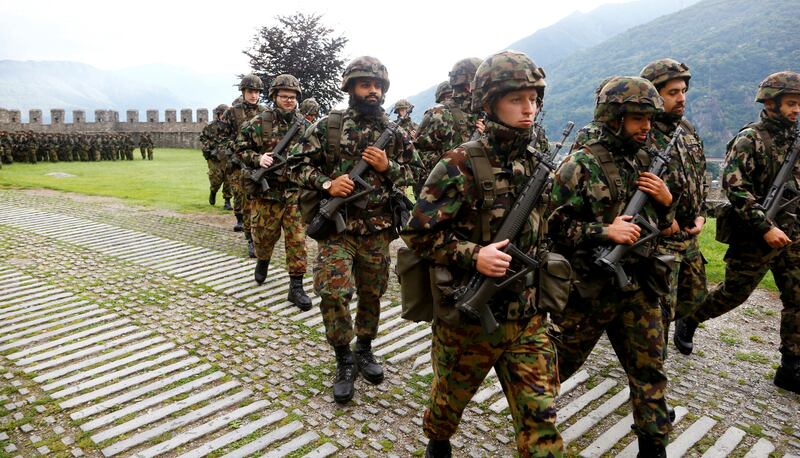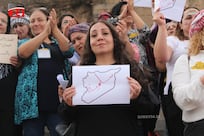Neutral Austria and Switzerland have joined a German-led initiative to upgrade Europe’s air defences, in a rare military team-up with more than a dozen Nato countries.
The two Alpine countries will take part in a buyers’ club called the European Sky Shield Initiative, which plans to jointly purchase off-the-shelf weapons such as US or Israeli missiles.
Germany launched the initiative last year in a drive to modernise Europe’s military equipment after Russia’s invasion of Ukraine brought an end to three decades of post-Cold War defence cuts.
A letter of intent was agreed between the three main German-speaking countries on Friday in what Austria’s Defence Minister Klaudia Tanner called a “historic and important signature”.
Austria and Switzerland added wording to the text that insists they remain neutral and would not take part in any foreign conflict. But their participation comes as non-aligned states reassess their position across Europe.
Finland became Nato’s 31st member in April and Sweden hopes to join the alliance soon, after both turned a page on decades of military neutrality. A debate is playing out in Ireland on the future of defence and security.
Sweden’s accession would leave Austria the only country on the European mainland that is part of the EU but not Nato. Ireland, Cyprus and Malta are also outside Nato while Switzerland is not in either group.
“We are convinced, I certainly am, that this project is the necessary European answer to protect our skies,” Ms Tanner said after signing the agreement for Austria.

Viola Amherd, the member of Switzerland’s ruling Federal Council responsible for defence, said the war in Ukraine had “shattered our understanding of security in Europe”.
Jointly buying missiles would allow for co-operation in training, maintenance and logistics but Switzerland will reserve the right to decide how far it participates, Ms Amherd said.
Switzerland recently blocked a defence company from exporting 96 Leopard A1 tanks to Ukraine, saying it would breach the country’s centuries-long neutrality.
The move to join Sky Shield has met some opposition in both countries. The Swiss People’s Party condemned what it called the country’s “Natoisation” while Austria’s Freedom Party demanded a referendum.
“Should Switzerland become a stooge of Nato and thereby the US? Is this project compatible with our country’s neutrality? In my view the answer is no,” said People’s Party spokesman Bruno Walliser.
Germany too has shifted from its post-1945 pacifism and sees improved air defences as “not a subject dear to our hearts, but one that is necessary”, said Defence Minister Boris Pistorius.
“In the last 30 years in Europe we didn’t have to deal with this subject because of the landscape that we had, but now we realise how important air defence is,” he said.
Mr Pistorius said Austria and Switzerland's membership would bring “more security, but no less neutrality”.

The two new members take the Sky Shield to 19 countries, of which all but Sweden are already in Nato. Prominent members include the UK, Germany and the Netherlands.
Notably missing is France, which is pushing a “buy European” credo that is at odds with Germany’s preference for Israeli Arrow 3 missiles and US-made systems such as Patriot.
The rift broke into the open at last month’s Paris Air Show when France’s President Emmanuel Macron announced Belgium, Cyprus, Hungary and Estonia had joined a rival coalition to buy French-made Mistral missiles.
Seeking to play down the dispute, Mr Pistorius said on Friday that the door remained open for France to join Sky Shield.
He said Germany opted for Israel’s Arrow 3 because there was no European equivalent on the market and it could take years of development before one is available.







